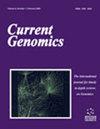FAT4 基因突变与胃癌的肿瘤突变负担和良好预后有关
IF 1.4
4区 生物学
Q4 BIOCHEMISTRY & MOLECULAR BIOLOGY
引用次数: 0
摘要
研究目的本研究旨在调查胃癌(GC)中的高频突变基因,评估这些基因与肿瘤突变负荷(TMB)和患者生存期的关系,并确定用于定制治疗的潜在生物标志物。研究方法从 TCGA 和 ICGC 数据库中收集 GC 的简单体细胞突变数据。从这两个数据集中确定了高频突变基因。根据重叠基因的状态,样本被初步分为野生型和突变组。两组间的 TMB 差异通过 Mann-Whitney U 检验进行评估。两组间的生存率差异采用 Kaplan-Meier 法和对数秩检验进行比较。靶基因的预后价值通过 Cox 比例危险度模型进行评估。通过基因组富集分析(Gene Set Enrichment Analysis,GSEA)确定了FAT4突变所涉及的信号通路。CIBERSORT算法计算了不同肿瘤浸润免疫细胞的比例。结果:在两个数据集中发现了21个频繁突变的重叠基因。这些基因的突变与 GC 中较高的 TMB 显著相关(P<0.05)。FAT4突变组的生存率高于野生型组。FAT4 基因突变也被认为是 GC 患者的一个独立的有利预后因素。GSEA表明,FAT4突变激活了参与能量代谢的信号通路。最后,在FAT4突变组中,CD4记忆激活T细胞、滤泡辅助T细胞和γ-δT细胞的富集程度明显提高,而幼稚B细胞和调节性T细胞(Tregs)的富集程度则明显降低(P<0.05)。结论FAT4突变与TMB和GC的良好预后有关,可能成为GC患者免疫治疗的有用生物标志物。本文章由计算机程序翻译,如有差异,请以英文原文为准。
FAT4 Mutation is Related to Tumor Mutation Burden and Favorable Prognosis in Gastric Cancer
Objective: This study aimed to investigate the frequently mutated genes in Gastric Cancer (GC), assess their association with Tumor Mutation Burden (TMB) and the patients’ survival, and identify the potential biomarkers for tailored therapy. Methods: Simple somatic mutation data of GC were collected from the TCGA and ICGC databases. The high-frequency mutated genes were identified from both datasets. The samples were initially dichotomized into wild-type and mutation groups based on the status of overlapping genes. TMB difference between the two groups was evaluated by the Mann-Whitney U-test. Survival difference between the two groups was compared by the Kaplan-Meier method with a log-rank test. The prognostic value of the target gene was assessed by the Cox proportional hazards model. The signaling pathways involved in FAT4 mutation were identified by Gene Set Enrichment Analysis (GSEA). The fractions of different tumor-infiltrating immune cells were calculated by the CIBERSORT algorithm. Results: 21 overlapping genes with frequent mutation were identified in both datasets. Mutation of these genes was significantly associated with higher TMB (P<0.05) in GC. The survival of the FAT4 mutation group was superior to the wild-type group. FAT4 mutation was also identified as an independent favorable prognostic factor for the GC patients. GSEA indicated that FAT4 mutation activated the signaling pathways involved in energy metabolism. Finally, CD4 memory-activated T cells, follicular helper T cells, and gamma delta T cells were significantly more enriched, while naïve B cells and regulatory T cells (Tregs) were significantly less enriched in the FAT4 mutation group (P<0.05). Conclusion: FAT4 mutation is relevant to TMB and favorable prognosis in GC, which may become a useful biomarker for immunotherapy of GC patients.
求助全文
通过发布文献求助,成功后即可免费获取论文全文。
去求助
来源期刊

Current Genomics
生物-生化与分子生物学
CiteScore
5.20
自引率
0.00%
发文量
29
审稿时长
>0 weeks
期刊介绍:
Current Genomics is a peer-reviewed journal that provides essential reading about the latest and most important developments in genome science and related fields of research. Systems biology, systems modeling, machine learning, network inference, bioinformatics, computational biology, epigenetics, single cell genomics, extracellular vesicles, quantitative biology, and synthetic biology for the study of evolution, development, maintenance, aging and that of human health, human diseases, clinical genomics and precision medicine are topics of particular interest. The journal covers plant genomics. The journal will not consider articles dealing with breeding and livestock.
Current Genomics publishes three types of articles including:
i) Research papers from internationally-recognized experts reporting on new and original data generated at the genome scale level. Position papers dealing with new or challenging methodological approaches, whether experimental or mathematical, are greatly welcome in this section.
ii) Authoritative and comprehensive full-length or mini reviews from widely recognized experts, covering the latest developments in genome science and related fields of research such as systems biology, statistics and machine learning, quantitative biology, and precision medicine. Proposals for mini-hot topics (2-3 review papers) and full hot topics (6-8 review papers) guest edited by internationally-recognized experts are welcome in this section. Hot topic proposals should not contain original data and they should contain articles originating from at least 2 different countries.
iii) Opinion papers from internationally recognized experts addressing contemporary questions and issues in the field of genome science and systems biology and basic and clinical research practices.
 求助内容:
求助内容: 应助结果提醒方式:
应助结果提醒方式:


